Three types of hotels
The hotel is a typical service industry, and the customer experience is very important in terms of service. Therefore, in recent years, many hotels are upgrading, such as: upgrading the decoration, upgrading the intelligent system, in order to provide a better service experience for customers.
Hotels are generally categorized into three types :
( 1 ) Small hostel/inns/bed and breakfast(B&Bs).
( 2 ) Medium and large five-star hotels
( 3 ) Branded chain hotels
Type 1 : Small hostel/inns/B&Bs/
Small hostels/inns/B&Bs, generally have the following needs :
1 : Need to build a new building or renovate an old one. Due to the limited budget, we hope that the communication system can be economical; if it is an old replacement, it is best to use the original phone to save costs.
If a hotel needs to be newly built or renovated, it can accept all-optical network + IP communication system to save comprehensive wiring costs, improve transmission efficiency, and give users the best network experience.
Hotels can also use S-port voice gateways or ONUs, that support access to analog phones to reuse old phones and save the overall investment budget.
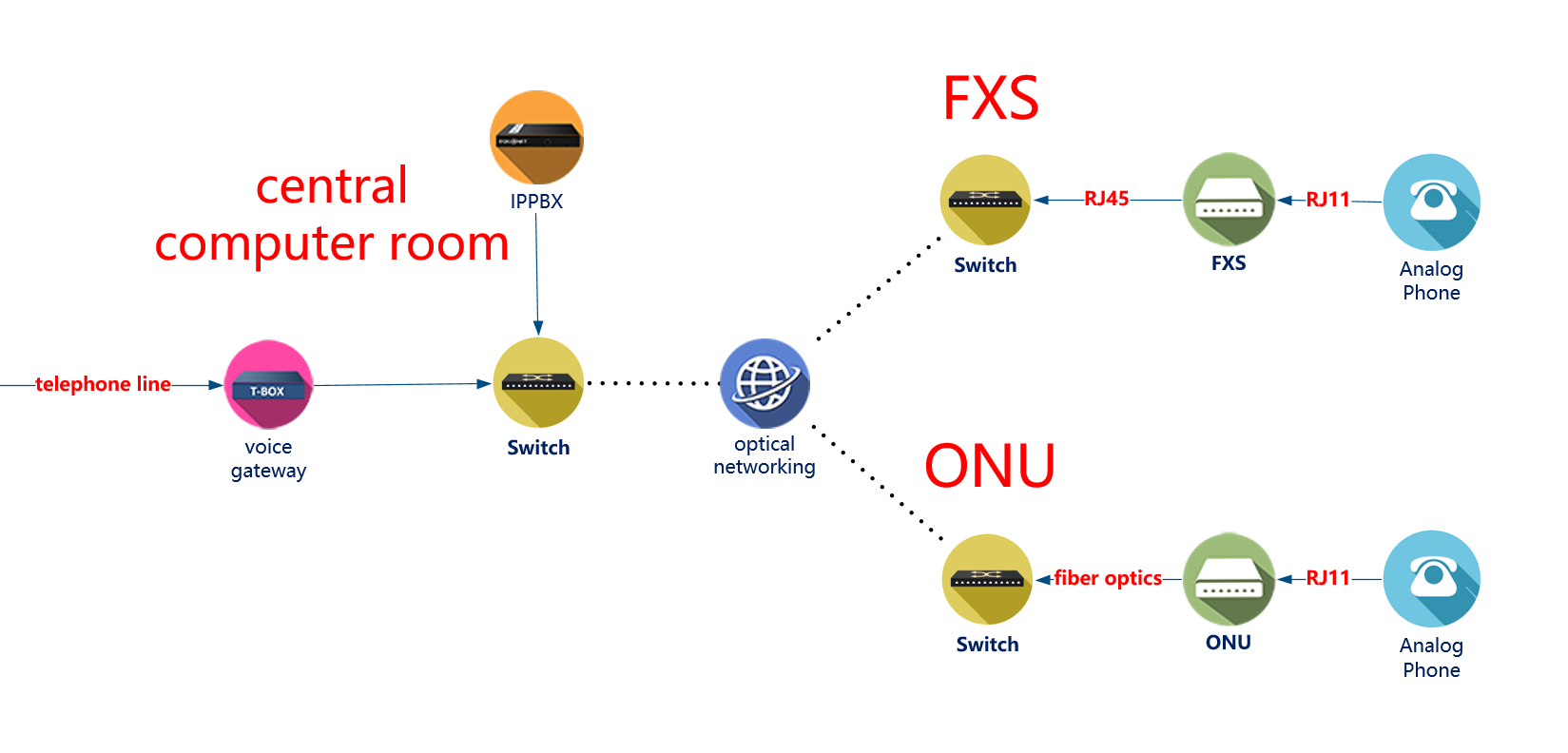
requirement 2 : Able to meet basic communication demands.
"Jiebao" series IP phone system can be used to meet the communication demands of the hotel below100 rooms, the system has multi-level IVR , which can customize the voice navigation.Support 4 telephone lines to meet the basic communication needs of the hotel.
3 : Wake-up requirement calls .
Solution Highlights
• Fast Transmission + Cost Saving: Through the deployment of fiber optic, it can save 30% ~ 50% of the cost compared with the traditional network cabling, .
• Cost-effective: Jiebao series IP phone system is affordable and able to fulfill the demands of customers with a low budget.
• Wake up call service: Jiebao has wake up call service, which can help hotels improve the user experience.
• Basic communication: Meet the dailycommunication demands of hotel.
Type 2 : Medium and large Five-star hotels
Medium and large Five-star hotels, generally have the following demands :
1 : The hotel requirement is going to be newly built or newly renovated, and wants to save money without degrading the user experience . For example, to improve the efficiency of the network transmission, keep the old analog phones.
All-optical network + IP Communication topology
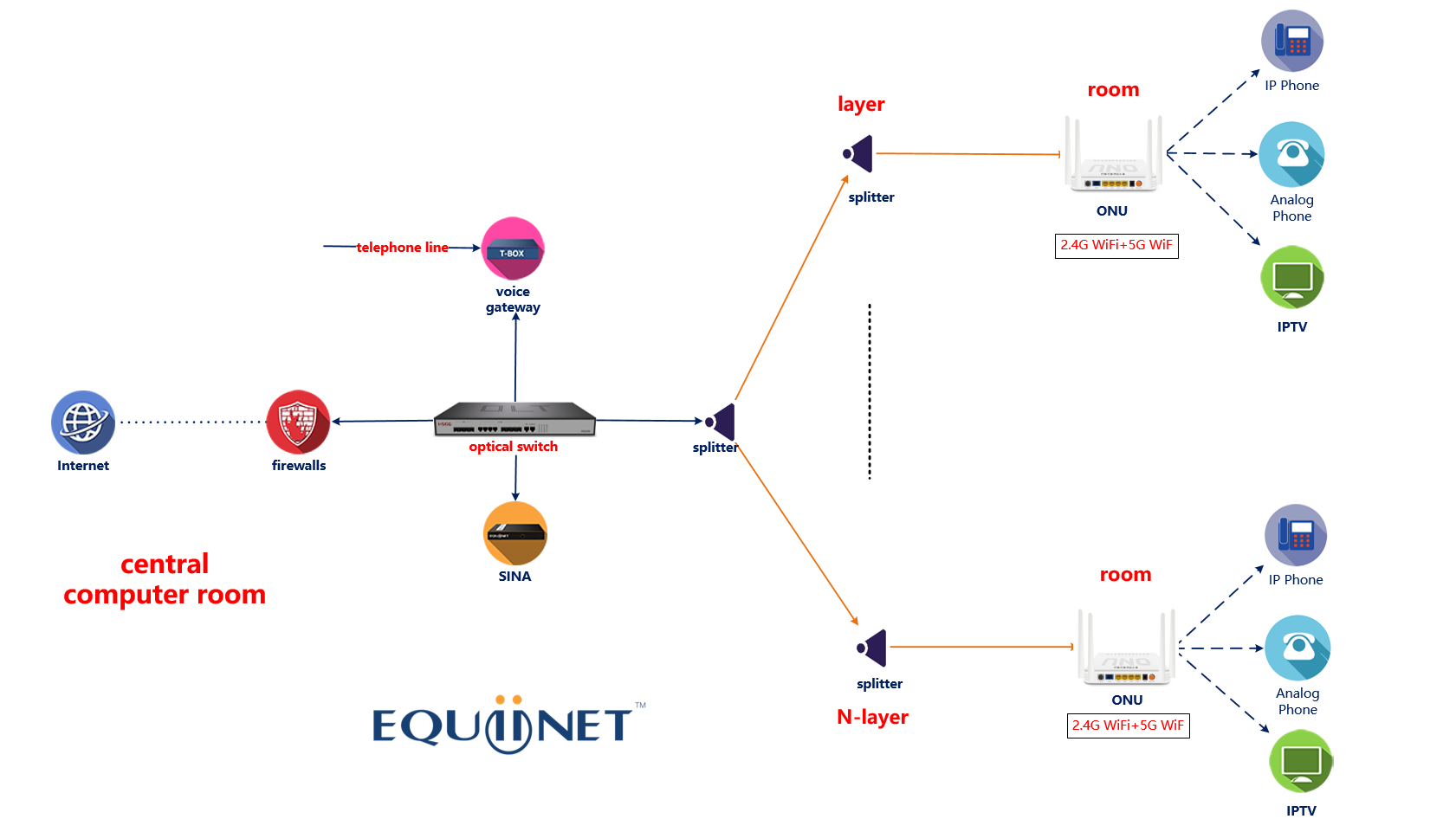
According to the demands of the hotel users, we made the following plans:
1. Optical has the advantages such as easy deployment, low cost, high transmission, long life , etc. Therefore, OLT is deployed in the server room, and then through the splitter to each floor, ONU is deployed in each room, and ultimately situation is that: in the guest room can be directly connected to the IP phone, IPTV and other equipment.
2. The extension number for the customer service area on the 3F~15F are: 3xx, 4xx, ..., 15xx. The extension number for the office area on 1F~2F is 6xxx. The internal walkie-talkie is all free of charge .
3. Support Multiple phones using the same extension number, enables multiple IP phones in a hotel room to use the same extension number.
4. Configure the E1 gateway and give specific DIDs to specific extensions according to user requirements, other extensions share the DID outgoing call number.
5. Configure IVR for the user , the user can customize IVR, which supports multiple layers.
Solution Highlights
• Fast Transmission + Cost Saving : By deploying optical fiber, the hotel transmission network cost can reduce 30%~50% of wiring cost compared with traditional network wiring.
• Choose the phone according to the budget: According to the hotel budget, you can choose to deploy analog phones or IP phones after ONU.
• Multiple phones with one extension : Deploy multiple IP phones (sharing one extension license) in advanced guest rooms to enhance user experience.
• Special Line Setting: Personalize the use of office + guest room phone lines through line binding;
• AI IVR: help customers quickly find the answers they want.
Requirement 2 : Connecting to the PMS hotel management system , to realize the connection between the IP Communication system and the hotel management system.
The hotel has their own management system and hopes can connect with IP Communication system.
Final implementation: You can check phone bills, wake up guests, check-in/check-out, room status management and other operations on the reception desk.

Solution and Deployment Details
The hotel's need to prepare two computers, one to deploy hotel management middleware, and one to deploy the reception desk.
( All the devices should be connect to interwork. )
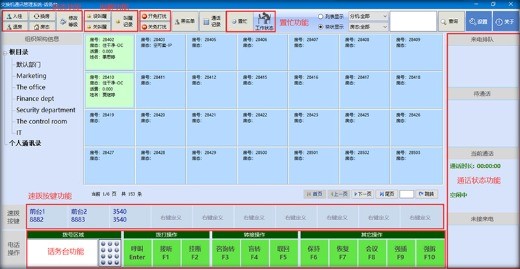
• Hotel management middleware, with strong capability, can connect to several hotel management systems ,such as: CSHOTEL, foxhis, armitage, greencloud, Opera, etc.
• After connecting, rich feature for guest.
( 1 ) Room status check and change(check-in/out)
( 2 ) Wake-up call service (scheduled wake-up call/team wake-up call)
( 3 ) Do Not Disturb (Set DND for the room's phone)
( 4 ) Room call level authority management (International, Domestic)
( 5 ) Blacklist (you can blacklist nuisance calls)
( 6 ) Call Bill (Check the call bill when check out)
( 7 ) Day & Night Service ( automatic switching of calls at night, inbound to different duty personnel )
( 8 ) Mini BAR ( check the consumption of the user's mini BAR )
Requirement 3 : We hope to enable AI smart IVR to quickly respond to incoming calls and improve the user experience.
hotels are facing some Problem :
• The hotel front desk is the center of the service hub, receiving a large number of calls every day, answering repetitive questions, and the calls will be overwhelmed at peak time.
• If they add the front desk staff, then the hotel's labor costs will increase; if not, the service will not be sufficient at peak time.
• Therefore, hotels have a strong need to reduce costs and increase efficiency . At the same time, in order to further improve the user experience and shorten the waiting time.
Solution and Deployment Details
1. Deploying AI Smart IVR in hotels to answer the calls and divert the pressure of answering calls during peak hours; shortening users' waiting time and improving user experience.
2. Whether the hotel is deployed with a PBX or an IP PBX, AI Smart IVR is compatible with the existing system environment.
3. AI Smart IVR, can avoid the user waiting, directly answer the user call, improve the user experience, and reduce the hotel labor costs. If it encounters problems that can't be answered, then call will be transferred to an agent for answer the questions.
PS : AI Smart IVR needs Internet towork.
Topology diagram of AI Smart operator combined with IPPBX
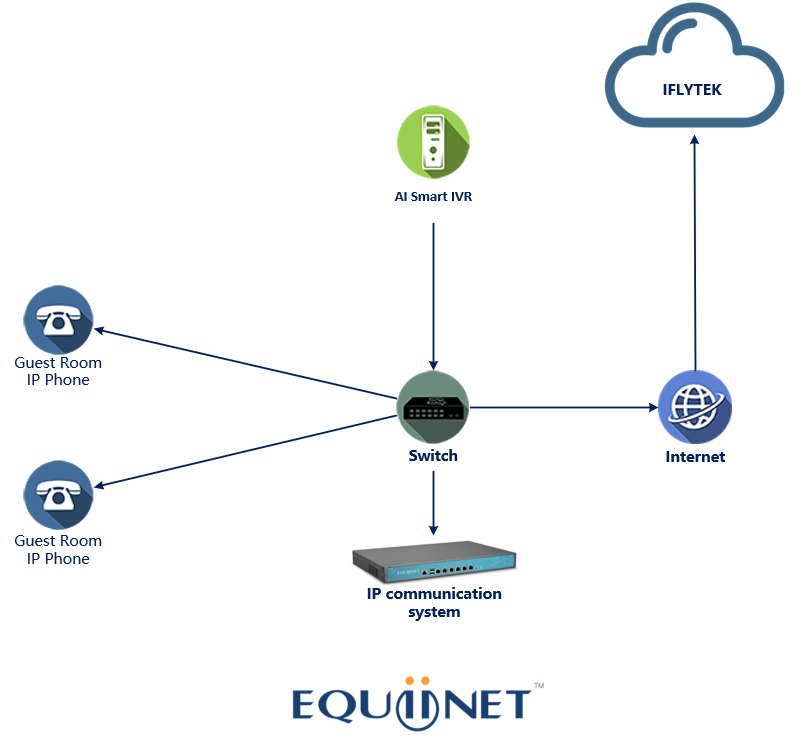
• Help hotels save labor costs andimprove front desk efficiency
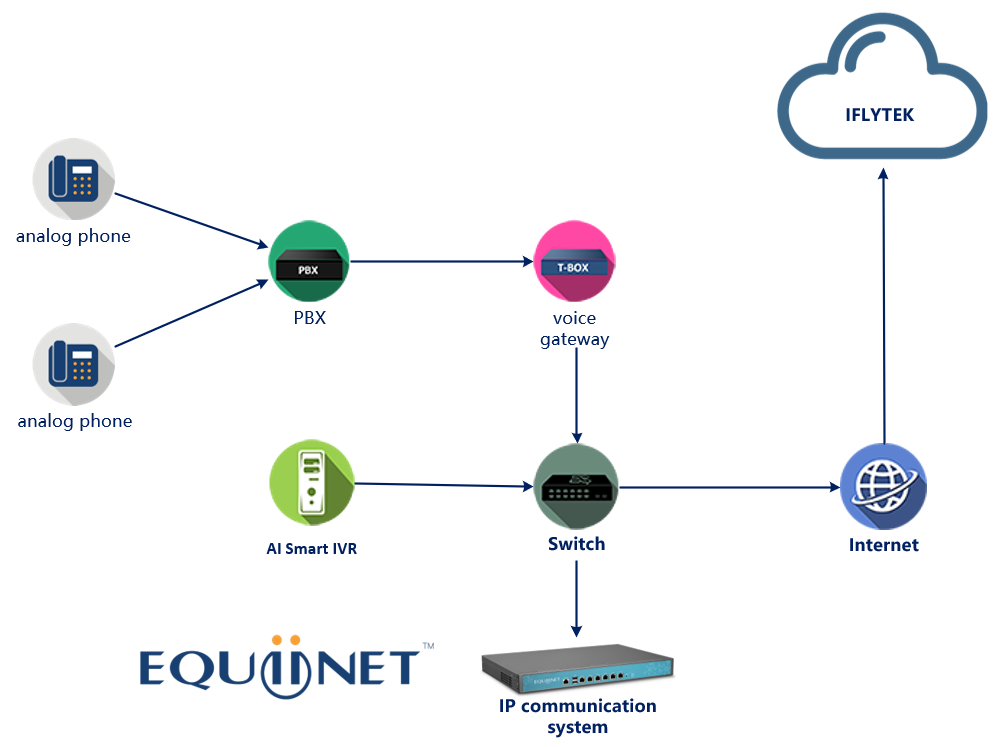
• Can utilize the original PBX system to save the hotel's expenses.
• AI Smart IVR need to be registered on the IP communication system. Therefore, the original PBX system need to be connect with the IP communication system.
Type 3 : Branded chain hotels

 Mon ~ Fri: 9:00 ~ 19:00
Mon ~ Fri: 9:00 ~ 19:00 9th Floor, Haohai Office Building, Haidian District, Beijing
9th Floor, Haohai Office Building, Haidian District, Beijing zchen@equiinet.cn
zchen@equiinet.cn

